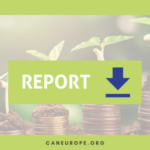This report shows that energy intensive industry sectors have been among the slowest in the European Union (EU) to reduce their greenhouse gas emissions and invest in solutions to decarbonise and maintain technological leadership.
Instead, these sectors have been putting a break on more ambitious climate policy, benefitting from watered down regulation, soft tax deals and preferential pricing. Their efforts to preserve unrivalled privileges have pushed the cost of dealing with climate change onto the rest of society.
Within the EU’s Emmissions Trading System (ETS) alone, EU governments missed out on more than €143 billion in revenue from handing out pollution permits for free between 2008 and 2015.
In European countries, the energy intensive industry receives extremely generous tax breaks. In Germany, households pay nearly twice as much for their electricity as energy intensive industry sectors. Their total financial gains from tax schemes amount to over €17 billion in 2016, roughly the same as the 2017 German federal budget for research and education.
Between 2014 and 2016, European governments provided nearly €15 billion in financial support that encourages continuous use of fossil fuels in industry and business each year.
Read the Executive summary here.
Read the full report here.

